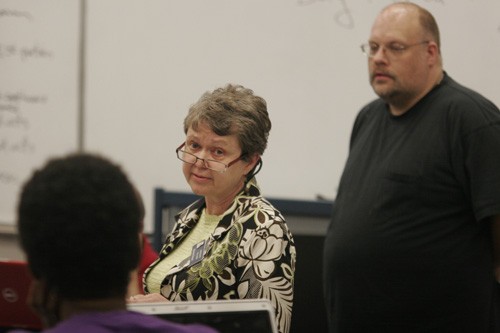Graduate student leaders last night named a special guest judge for their upcoming Student Showcase: KOLD weatherman Chuck George.
“”I know, calm yourselves,”” said Cory Christenson, physics doctoral student, during the Graduate and Professional Student Council’s meeting.
The showcase, hosted by GPSC, displays work by graduate and undergraduate students and culminates in the awarding of a small cash prize.
Applications for the showcase — near a record low of 25 by the original deadline last week — grew to more than 100 this week, said optical sciences doctoral student James Johnson.
The explosion of applicants has led GPSC to require additional tables but is still set to meet budget, Johnson said.
The graduate council also discussed the formation of an advisory committee to oversee ongoing efforts to pass a graduate student bill of rights. This committee would include representatives from the Associated Student of the University of Arizona, the Arizona Students Association and the GPSC policy subcommittee, among other groups, said GPSC President David Talenfeld, a second-year law student.
“”I would like to build as broad-based of a coalition as possible,”” he said.
The next step for the bill of rights — now in an unofficial draft form largely unchanged from a version passed by the GPSC last year — will be to gain the endorsement of several faculty and administrative stakeholders, Talenfeld said. These bodies include the Graduate Council — an academic policy advisory board — and the Faculty Senate.
While a final version of the bill has not been approved by the full session of the GPSC, the advisory committee would manage edits made to the bill by these stakeholders and then present a revised draft to the full session for approval. The bill would then be passed to the Office of General Counsel and the President Robert Shelton for official ratification.
Jim Collins, a non-degree seeking graduate student, said the formation of an advisory committee would be pointless because the older council already approved a version of the bill of rights. The danger, he said, would be the bill getting trapped in a bureaucratic cycle where it may not emerge in an official form for years.
“”I can see how this could be a never-ending process,”” Collins said.









